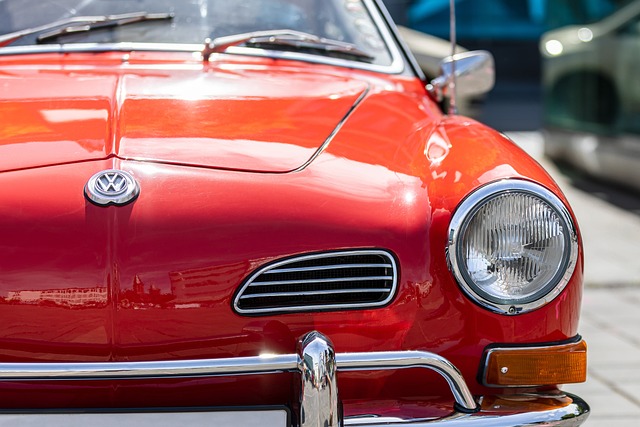VIN verification is essential for classic car owners to ensure their vehicle's authenticity and protect its value. Choose a reputable vin verifier with experience in vintage cars, who uses reliable databases like DMV records to cross-reference the 17-character VIN code. The inspection includes a visual assessment and scanning the VIN against historical data to confirm ownership history, accidents, and repairs, resulting in a vin verified report. To overcome age-related challenges, ensure clear visibility of the VIN, use vehicle history report databases, consult local DMVs or specialists, and seek advice from experienced restorers.
“Uncovering a classic car’s true identity starts with meticulous VIN verification—a crucial step for discerning owners. This comprehensive guide navigates the process, empowering enthusiasts to make informed decisions. We demystify the steps involved, from understanding the significance of Vehicle Identification Numbers (VIN) to choosing reputable verifiers like certified VIN inspectors or trusted DMV services. Learn what to expect during a thorough VIN inspection and gain insights into addressing common issues, ensuring your classic car is accurately VIN verified.”
- Understanding VIN Verification: The First Step for Classic Car Owners
- Choosing the Right VIN Verifier: Tips and Considerations
- The Inspection Process: What to Expect During a VIN Verification
- Common Issues and How to Resolve Them: Ensuring Your Classic Car is VIN Verified
Understanding VIN Verification: The First Step for Classic Car Owners

Understanding VIN Verification: The First Step for Classic Car Owners
For classic car enthusiasts, owning a vintage vehicle is more than just a passion; it’s a testament to history and craftsmanship. However, ensuring the authenticity and integrity of your prized possession is paramount. This is where VIN (Vehicle Identification Number) verification comes into play as an essential process in validating that the car you own is indeed what it claims to be—a true classic. A vin verifier or inspector will delve into the intricate details of the vehicle’s history using its unique VIN, a 17-character code that serves as its fingerprint.
By comparing the provided VIN with records from various sources, including state DMV (Department of Motor Vehicles) databases, historical documentation, and industry reports, a vin inspector can verify whether the car has been properly maintained, altered, or, worse, reported as stolen. This meticulous process not only safeguards classic car owners but also helps maintain the integrity of the market for these timeless treasures. For those seeking peace of mind and a reliable way to ensure their classic car’s authenticity, professional VIN verification services are readily available through trusted providers, making it easier than ever to verify your vehicle’s history.
Choosing the Right VIN Verifier: Tips and Considerations

When it comes to classic car VIN verification, choosing the right vin verifier is crucial. Look for a reputable vin inspector with extensive experience in the automotive industry, preferably specializing in vintage or classic vehicles. This ensures that they have the knowledge and tools necessary to accurately verify your car’s history and authenticity. Consider their credentials, reputation, and customer reviews to make an informed decision.
Additionally, ensure the vin verifier uses reliable databases for their vin number verification, such as those maintained by the DMV or international automotive organizations. Reputable inspectors will also provide a detailed report outlining the vehicle’s origin, ownership history, accident reports (if any), and previous repairs, giving you peace of mind that your classic car is truly vin verified and without hidden issues.
The Inspection Process: What to Expect During a VIN Verification

During a VIN verification inspection, a vin verifier or inspector will meticulously examine various aspects of your classic car to ensure its authenticity and history. The process typically starts with a comprehensive visual inspection, where the examiner looks for signs of tampering, damage, or restoration work on key areas like the chassis, engine bay, and body panels. This initial assessment helps identify any discrepancies that might warrant further investigation.
Next, the vin inspector will use specialized tools to scan and decode the Vehicle Identification Number (VIN). They’ll verify the VIN number’s accuracy against records kept by the DMV or other official databases. By cross-referencing this data with historical records, a vin verifier can confirm the car’s ownership history, accident reports, and any reported damage or repairs. The entire process aims to provide a vin verified report that offers transparency and peace of mind for classic car owners and buyers alike.
Common Issues and How to Resolve Them: Ensuring Your Classic Car is VIN Verified

Many classic car enthusiasts face challenges when it comes to VIN (Vehicle Identification Number) verification due to the age and potential lack of comprehensive records. Common issues include hard-to-read or faded VINs, missing documentation, and inconsistent information across various sources. To overcome these obstacles, start by ensuring clear visibility of the VIN—scrub the surface for any debris or corrosion. If necessary, use specialized cleaning solutions designed for automotive applications.
Next, cross-reference the VIN with reliable databases offered by vehicle history report providers. These services often include detailed records and can help verify ownership, accident history, and maintenance records. For regions where a DMV (Department of Motor Vehicles) vin verification is standard, consult local officials or authorized inspectors who specialize in classic cars to ensure an accurate and official stamp. Consider seeking advice from experienced restorers or fellow enthusiasts who have navigated these processes successfully—they might offer valuable insights tailored to your region.
When it comes to classic cars, proper VIN verification is key. By choosing a reputable VIN verifier and understanding the inspection process, owners can ensure their vehicle’s authenticity and historical integrity. Regular VIN checks help maintain the value and legality of these cherished classics, making them a reliable investment and a source of pride for any owner. With the right tools and knowledge, navigating this process becomes as smooth as a well-oiled engine.
